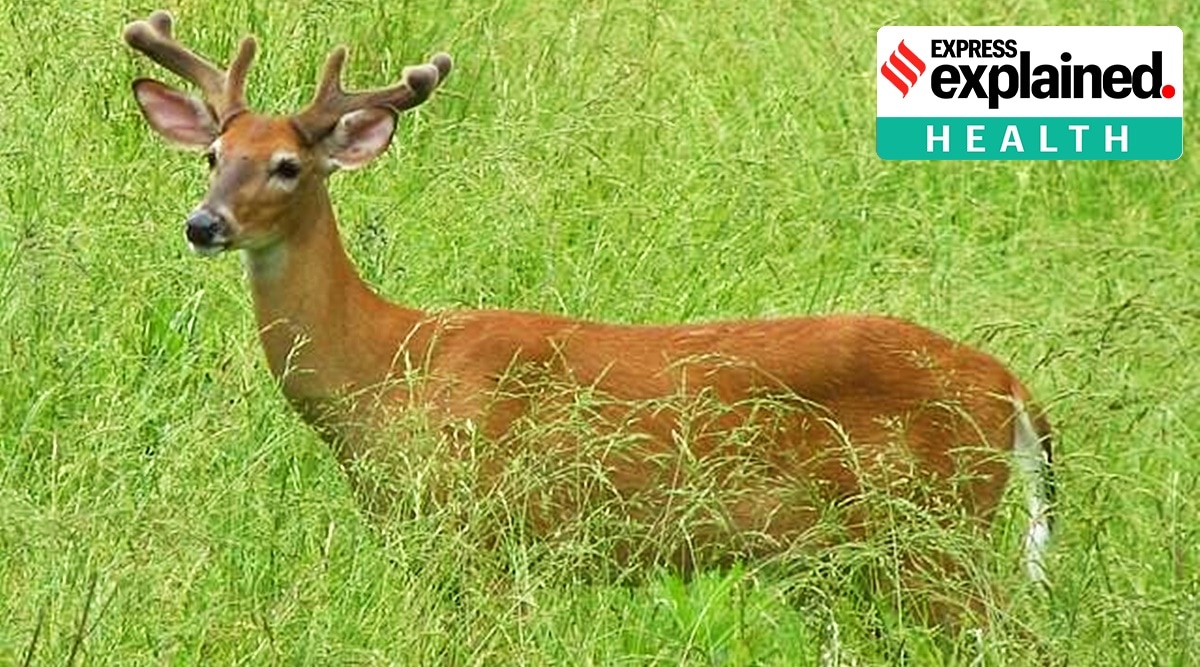Deer could be reservoir of old coronavirus variants: What a new study says
The findings are based on samples collected from white-tailed deer through December 2021.
 Previous studies of deer have suggested humans have repeatedly introduced the coronavirus into white-tailed deer populations in the United States and Canada and that deer can spread the virus to one another. (Express Photo)
Previous studies of deer have suggested humans have repeatedly introduced the coronavirus into white-tailed deer populations in the United States and Canada and that deer can spread the virus to one another. (Express Photo) The alpha and gamma variants of the coronavirus continued to circulate and evolve in white-tailed deer, even after they stopped spreading widely among people, a new study suggests.
Whether the variants are still circulating in deer remains unknown. “That’s the big question,” said Dr Diego Diel, a virus expert at Cornell University and an author of the study, which was published in Proceedings of the National Academy of Sciences on Tuesday.
But the findings, which are based on samples collected through December 2021, provide more evidence that deer could be a reservoir of the virus and a potential source of future variants, which could spill back into human populations.
What’s the link between deer and coronavirus?
Previous studies of deer have suggested humans have repeatedly introduced the coronavirus into white-tailed deer populations in the United States and Canada and that deer can spread the virus to one another.
Scientists are not sure how people are passing the virus to deer, but they have speculated that it might happen when people feed deer or deer encounter human trash or waste.
The scale of the risk that infected deer pose to humans remains unclear. Scientists have documented one case that most likely resulted from deer-to-human transmission in Ontario, and they note that hunters and others who have regular contact with the animals could potentially catch the virus from them.
How was the study conducted?
For the new study, Diel and his colleagues analysed about 5,500 tissue samples collected from deer killed by hunters in New York state from September through December in 2020 and 2021.
During the 2020 season, just 0.6% of the samples tested positive for the virus, a figure that rose to 21% during the 2021 season. Genetic sequencing revealed that three variants of concern — alpha, gamma and delta — were all present in deer during the 2021 season.
At the time, delta was still prevalent among New York’s human residents. But alpha and gamma had practically vanished, especially in the rural parts of the state where the infected deer were found.
The Centers for Disease Control and Prevention recommends that deer hunters take a variety of basic precautions to reduce the risk of infection, including wearing masks while handling game and washing hands thoroughly afterward.
- 01
- 02
- 03
- 04
- 05





































